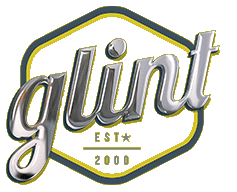Even the smallest marketing team has a fundamental understanding that Facebook is a platform that holds tons of potential. After all, you want to put your materials where your audience is, and Facebook boasts over 2.4 billion active users. Also, there are a lot of different tools within the platform that can help you narrow down that audience to whom you think will fit your business best.
Many companies are only scratching the surface of Facebook’s potential, focusing mainly on sponsored posts and trying to boost them. Here’s a more advanced look at the steps you can take to improve your Facebook marketing, as well as what to do when you reach the limit of your in-house team’s capability.
What Can You Do On Your Own?
A lot of internal Facebook marketing “teams” are a bit misled with the tools they have at their disposal. For example, you can put together a series of content, hit the “boost post” function, and feel as though you’re making a significant impact. However, if you’re trying to build an audience, this function won’t produce much. The boost post function is more for the benefit of Facebook rather than your business. A boosted post also circulates to your current followers, rather than touching new followers. To find options that can help you target outside of your current followers, you should be using the Facebook Ad Center and Facebook Business Manager.
A good way to think of your Facebook strategy is in terms of circles. Boosting a post is more about your existing circle, so it’s a small radius. Ad Center was developed with marketers in mind so that it can target a wider circle. Because Facebook Business Manager gives you the ability to create ads and use tools like pictures to track conversions that go much further than your existing fan base. The caveat here is the larger the span, the harder it is to master these tools. Many in-house teams don’t have the capacity or experience necessary to try and master the Ad Center or Business Manager fully.
So, with this in mind, what can teams that are just doing sponsored posts do to start moving into more advanced work? Here are some key suggestions.
Targeting: There are different goals that companies have for their Facebook marketing. In some cases, they are just looking to increase brand awareness. However, for the most part, you should be looking to drive actual action, with brand awareness as a side benefit. The Ad Center is your home base that helps set up pixels so you can track conversions and fine-tune your demographic and geographic reach. One thing to keep in mind is that different pixel setups are required for each type of website platform (WordPress, Drupal, etc.).
Using Instagram Wisely: Facebook and Instagram have a seamless integration that can allow you to create content for it and Facebook at the same time. For example, if you create a square image ad, you’ll have something that works for both platforms. Image quality is paramount with this platform, so if you can’t afford professional photography, you’re better off utilizing stock images. It also helps to orient your imagery per the specifications of the platform to allow for the best representation of your brand. For example, if you put content that’s not vertical or made for video on Instagram Stories, there will be unsightly black borders present.
Messenger Bots: One survey showed that 80% of all businesses on Facebook wanted chatbots in place by this year. Adding this feature is time well spent, as it can help customers get answers to quick and easy questions about your business. Also, one-third of all Facebook users employ this function regularly. To get started with these, you need to purchase software to develop your chatbox before linking it to Facebook Messenger. The good news is that this process has become much easier due to advancements within the technology.
Building Up Slowly, But Steadily: The shotgun approach rarely works when it comes to advanced Facebook Marketing. It’s better to pick a few areas to excel in then move forward. As an example, if you want to get into video, you need to build up a content library first. If you don’t, you pay for a video, people look at it, want to see more, and there’s nothing to keep their interest. Lack of consistency will cost you conversions. The same applies to Facebook or Instagram ads that go to pages with sparse or irregular content.
Use Online Resources: While you’re not likely to be as good as a Facebook marketer that’s been working in the platform for years, you can advance from the basics. There’s are a variety of online resources that can help you learn some fundamentals of the Ad Center and other Facebook features. Also, if you have an Ad Center account, Facebook itself is likely to reach out to you and provide support, including audits.
So, with this in mind, at what point do you bring in external help and stop handling Facebook marketing on your own? That decision starts with being realistic about your ROI and how Facebook works. Remember, while Facebook can provide data for you about your ad performance, they are mainly going to be charting impressions, not conversions. In some cases, like building brand awareness, Facebook can be a great platform. However, if you’re a retail business, brand awareness may not be your primary focus. If that’s the case, it would be best for you to focus on conversions. When conversions are your main focus, and you’re beginning to spend $1,000 or more to compete on Facebook, it’s time to start engaging professional marketers.
Moving Forward With Additional Support
When you’re looking for additional support, it’s essential that you partner with a company like Glint, that has an in-depth understanding of marketing integration and creative development. Expertise like this ensures your campaigns integrate with your overall marketing strategy. For example, you can reach out to a digital firm and have them set up and monitor the campaigns in addition to throwing some ads together. A full-service agency will create the ads to ensure they connect with your brand and resonate with the targeted audience. They will also help develop integration strategies to make sure the ads are converting properly and driving toward your other marketing channels.

Equally important is making sure you work with an agency that is going to set clear expectations. Some businesses expect a volume of work and ROI with a budget that isn’t feasible. It’s better to reach out to an agency that will tell you your budget isn’t enough for the task, rather than taking your money and, in-turn providing ineffective campaigns.
One other red flag that you want to look out for when working with an agency is if you’re required to work within their platforms. Often it’s best to do this; however, it shouldn’t be required. If the relationship changes, you should have access to your platforms and have the power to press a button to remove their access.
If you’re interested in more facts about advanced Facebook marketing, here’s a link to our recent podcast on the subject. When you’re ready to bridge the gap with a third-party solution, Glint Advertising is the ideal choice. We can appraise the status of your current Facebook marketing efforts, in addition to others, and get the platforms and campaigns you need moving forward.







